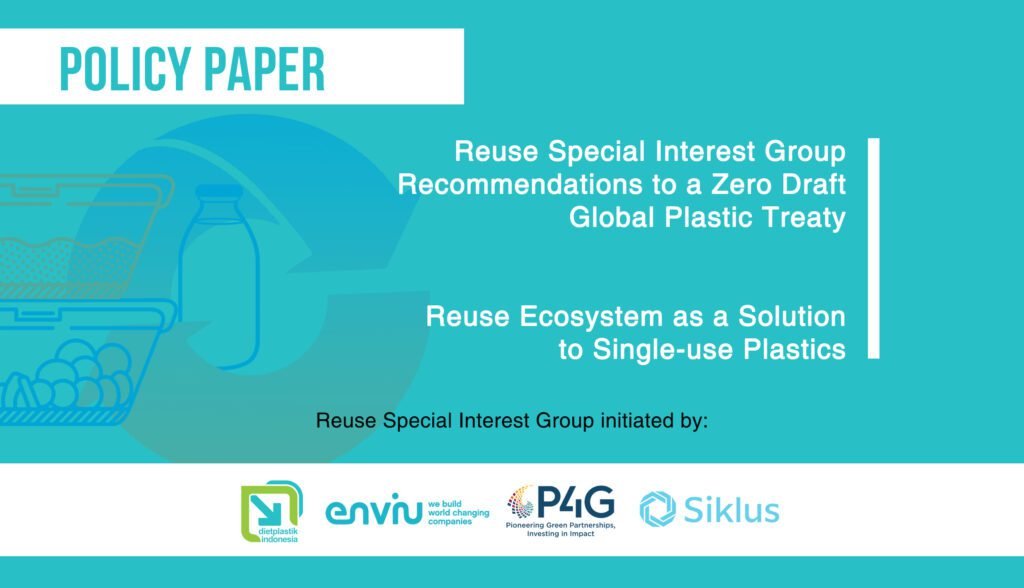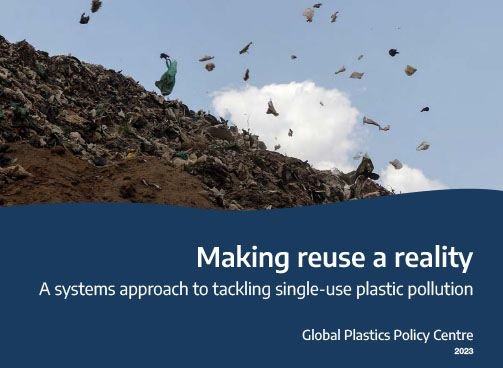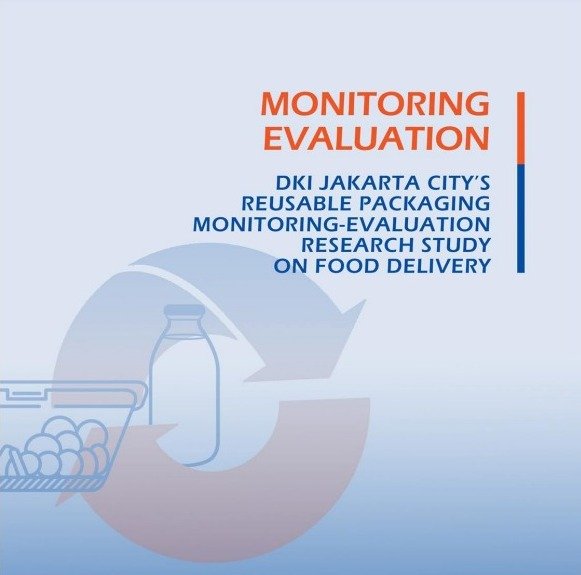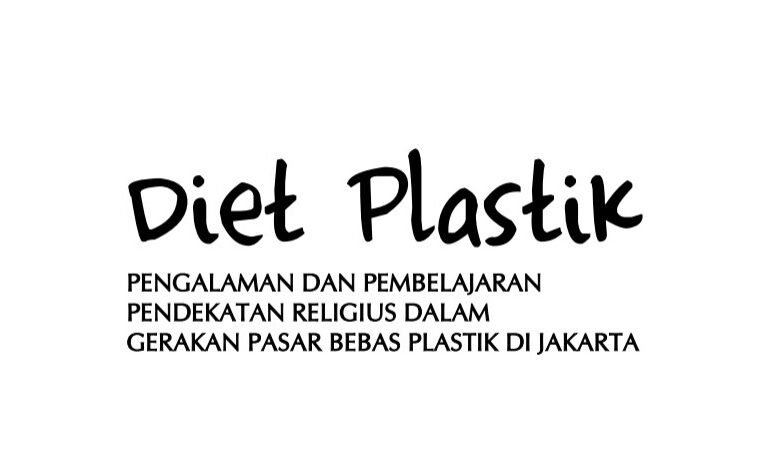Preliminary Study: Establishing Reuse Solutions and Roadmap Design for Waste Reduction through Reuse by Producers in Indonesia

This document presents the preliminary study that aim to develop strategies and roadmap in order to reduce plastic waste through reuse by manufacturers in Indonesia. This is intended as a transition part into circular economy where the products and packaging are not only used once, but also reusable by several models and reuse system. Download […]
Reuse Movement: Solution to Replace Single-Use Plastic

Pemerintah Indonesia melalui Kementerian Lingkungan Hidup dan Kehutanan mengeluarkan Peraturan Menteri No. P75/2019 tentang Peta Jalan Pengurangan Sampah oleh Produsen, yang mana menargetkan per 1 Januari 2030, penggunaan plastik sekali pakai akan dilarang, dan produsen didorong untuk berpartisipasi aktif dalam mengurangi limbah kemasan produknya. Peraturan ini mencakup berbagai bentuk pengurangan penggunaan plastik sekali pakai yang […]
Guide to Preparing Single-Use Plastic Restriction Regulations

Single-use plastic is still a problem in Indonesia. Not only does it harm the environment, but single-use plastic has also been proven to affect human health, whether inhaled directly through the air or contaminated by the food and drinks consumed. Indonesia, which has been recorded as the second largest contributor of marine plastic waste in […]
Reuse Special Interest Group Recommendations to a Zero Draft Global Plastic Treaty

Creating a Reusable System

This report will explain the four important stages needed to realize a reuse system, starting from the first step to the stage of creating enabling conditions for reuse systems to become the new norm. These stages are based on some of the evidence presented in the earlier chapters of this report. Through these stages, reuse […]
GIDKP Recommendations on INC-2 International Treaty on Plastics

About the Second Session of the Intergovernmental Negotiating Committee (INC-2) on Plastic Pollution in Paris, France, next week, GIDKP has a mission to promote reuse practices as a substitute for single-use plastics. This is also related to GIDKP’s collaboration with Enviu through the Jakarta Reuse Movement, which aims to create an ecosystem that can support […]
DKI Jakarta City’s Reusable Packaging Monitoring-Evaluation Research Study on Food Delivery

The global project Export Initiative Environmental Protection, funded by the German Federal Ministry for the Environment, Nature Conservation, Nuclear Safety and Consumer Protection (BMUV), aims to create sustainable and favourable conditions for introducing resource-efficient, climate-friendly, and innovative technologies in its target countries. For the regional project “Collaborative Action for Single-Use Plastic Prevention in Southeast Asia” (CAP […]
Dietplastik: Experiences and Lessons Learned from the Religious Approach to the Plastic Free Market Movement in Jakarta

This book is a documentation of the activities of the most important movement of this century, namely the environmental movement with a religious approach (religiosity) will at least reinforce good practices, inspire real action, encourage broad impact to provide the task of the human caliphate (caretaker) on earth as well as to realize environmental ethics […]
The Jakarta Reuse Movement: An Effort to Realize a Pilot Reuse Ecosystem

The Jakarta Reuse Movement is an initiative by GIDKP and Enviu to create an ecosystem that can support the reuse lifestyle in Jakarta. By taking an advocacy, cooperation, and education approach, GIDKP and Enviu have the ambition to reduce single-use plastic waste other than plastic bags, which are consumed in high quantities and difficult to […]
Draft Policy Recommendations for Limiting the Use of Single-Use Plastic in Food and Beverage Delivery Services in DKI Jakarta Province

The use of plastic food and beverage containers, especially in DKI Jakarta Province, has experienced a high increase in consumption due to the higher level of food and beverage shopping transactions through online applications. However, the lack of access to alternative reuse systems is believed to be one of the most significant barriers to adopting […]

